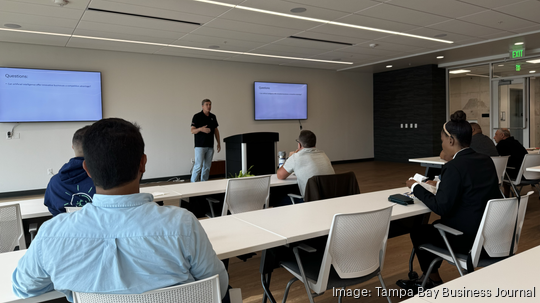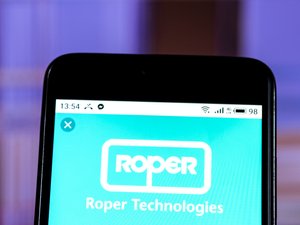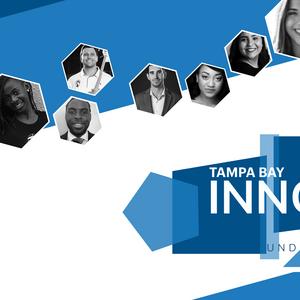
The biggest takeaway from a recent talk at St. Petersburg-based Tampa Bay Innovation Center about safeguarding artificial intelligence creations was that strategic use and protection of AI can significantly boost your competitive edge in the market, whether you are a creator, entrepreneur or innovator.
However, it also raises questions related to copyright laws, patentability and data ownership.
The talk, held Aug. 15, is part of a series the center hosts called Tech Talks. These talks explore different areas of technology and innovation regularly. Chris Paradies, a senior attorney with the United Services Automobile Association, led the discussion.
Paradies, a certified intellectual property lawyer who serves on USAA's IP council, led his talk on protecting AI creations through patents and copyrights. He also stressed the importance of how AI can enhance your market position.
“Can AI offer innovative businesses some kind of commercial advantage?" Paradies asked the crowd. "Will it be a competitive advantage, [and] if that’s true, how are you going to protect that competitive advantage?”
Paradies said that’s where intellectual property comes into play.
Tampa Bay Inno has provided some key takeaways below:
Intellectual property is not really property at all
Paradies highlighted the importance of differentiating intellectual property and intangible property.
“The thing that really has value to most businesses is intangible property,” Paradies said. “It is the property that adds value to your company because it adds equity, or you can bring investors in, or it brings cash into your pockets sometime down the road.”
Protect these intangibles by using the same intellectual property, including copyright, patents, trade secrets, trademarks and unfair competition laws, both federal and state, he said. According to Paradies, 80% or more of the value of companies listed on the S&P 500 is attributed to their intangibles, not real estate, cash or credit lines.
Paradies emphasized that anything else a company creates can be protected by registering a copyright. Patents and trade secrets can also be used for additional inventions.
Just like a diamond, intellectual property has different values
The key when paying for intellectual property is to make sure to find the value in your company so you can get a good return on investment, Paradies said.
“You don’t want to be spending a million dollars to protect a rock ... but if you had the whole diamond in your house, then it might make sense to put it in a $10,000 safe,” he said.
Just like a diamond or real property, intellectual property has different values. If AI can provide a competitive advantage, you want to be able to figure out a way to protect that — and it may not be easy.
Protect your competitive advantage without using patents
For small businesses, Paradies said patents are not the way to go.
"If you absolutely need patents, get a portfolio of them and budget into your ask from your investors the cost of that, not the litigation of them but the cost of acquiring them," Paradies said.
The expense is steep, and what you would lose is far greater. Paradies said when disclosing an invention to get a patent — because AI does not qualify in the courts — you may not get one as intended or end up not being patent-eligible, leaving said invention on the table for the public to snatch up.
Copyright and patent law come from the Constitution, and according to Paradies, courts have interpreted the power it gives to Congress — but only for and from humans. AI does not qualify.
It could change in the future, but according to Paradies, it’s a “matter of public policy."
Inventions are only protectable if you can keep AI creations a trade secret
Before wrapping up his main points, Paradies said it's always a good plan to keep everything a trade secret in the AI space due to its grey area. In utilizing trade secrets, you preserve that particular asset.
But he said what is protectable as a trade secret should be maintained forever as a competitive advantage.
"The question really will be, what will be patentable in the future? Now, you need a co-human inventor. It will probably not be what it is now," he said.









